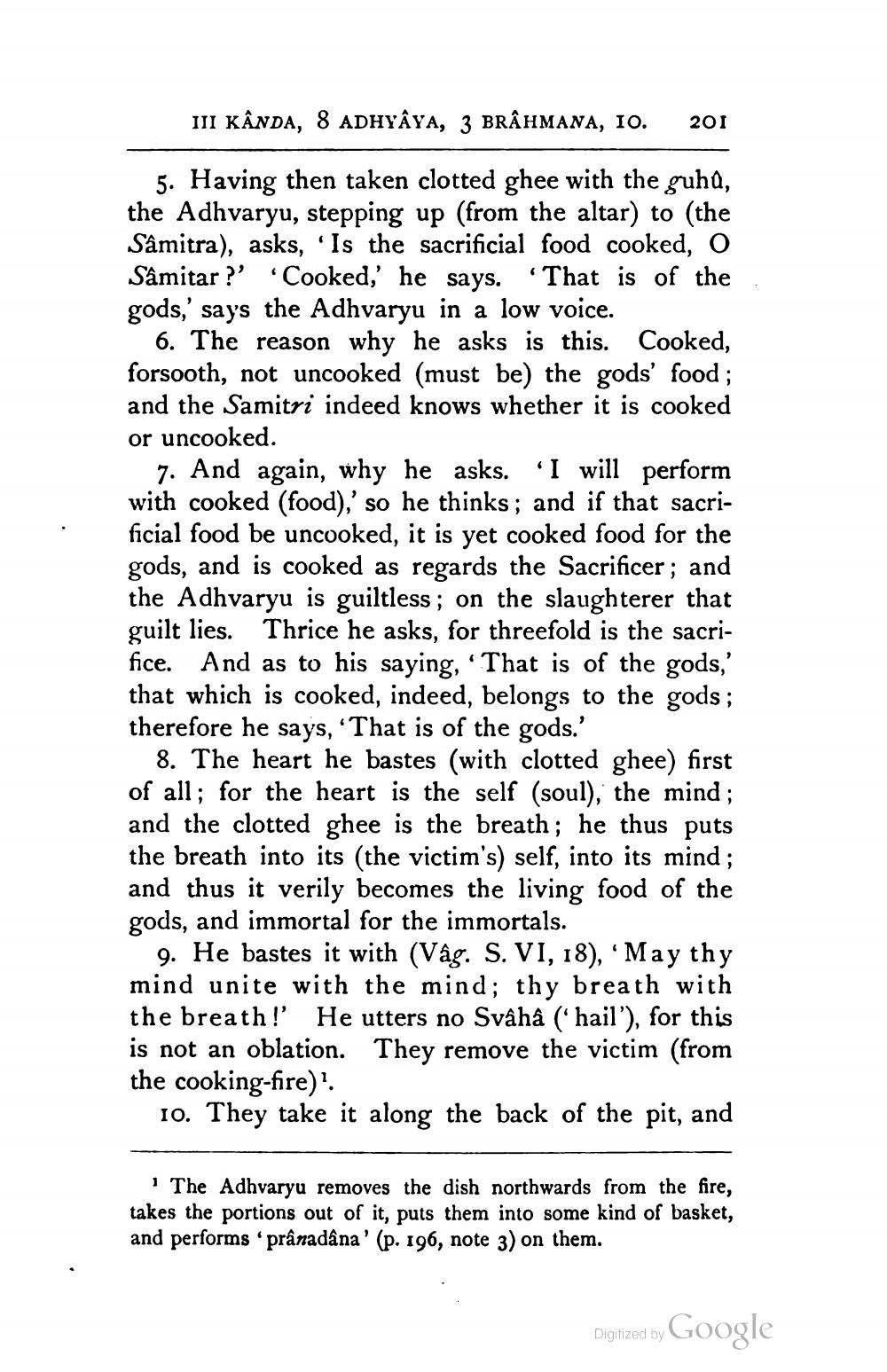________________
III KÂNDA, 8 ADHYAYA, 3 BRÂHMANA, 10.
201
5. Having then taken clotted ghee with the guha, the Adhvaryu, stepping up (from the altar) to (the Sâmitra), asks, 'Is the sacrificial food cooked, O Sâmitar ?' 'Cooked,' he says. "That is of the gods,' says the Adhvaryu in a low voice.
6. The reason why he asks is this. Cooked, forsooth, not uncooked (must be) the gods' food; and the Samitri indeed knows whether it is cooked or uncooked.
7. And again, why he asks. “I will perform with cooked (food),' so he thinks; and if that sacrificial food be uncooked, it is yet cooked food for the gods, and is cooked as regards the Sacrificer; and the Adhvaryu is guiltless ; on the slaughterer that guilt lies. Thrice he asks, for threefold is the sacrifice. And as to his saying, “That is of the gods,' that which is cooked, indeed, belongs to the gods ; therefore he says, That is of the gods.'
8. The heart he bastes (with clotted ghee) first of all; for the heart is the self (soul), the mind; and the clotted ghee is the breath; he thus puts the breath into its (the victim's) self, into its mind; and thus it verily becomes the living food of the gods, and immortal for the immortals.
9. He bastes it with (Vág. S. VI, 18), ‘May thy mind unite with the mind; thy breath with the breath!' He utters no Svâhâ (“hail'), for this is not an oblation. They remove the victim (from the cooking-fire)?
10. They take it along the back of the pit, and
The Adhvaryu removes the dish northwards from the fire, takes the portions out of it, puts them into some kind of basket, and performs prânadâna' (p. 196, note 3) on them.
Digitized by Google




